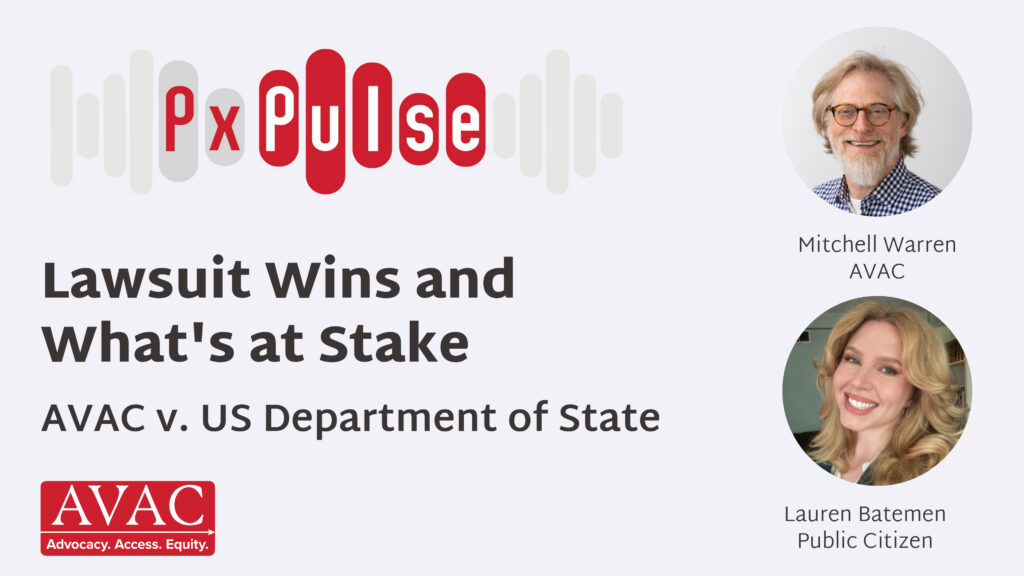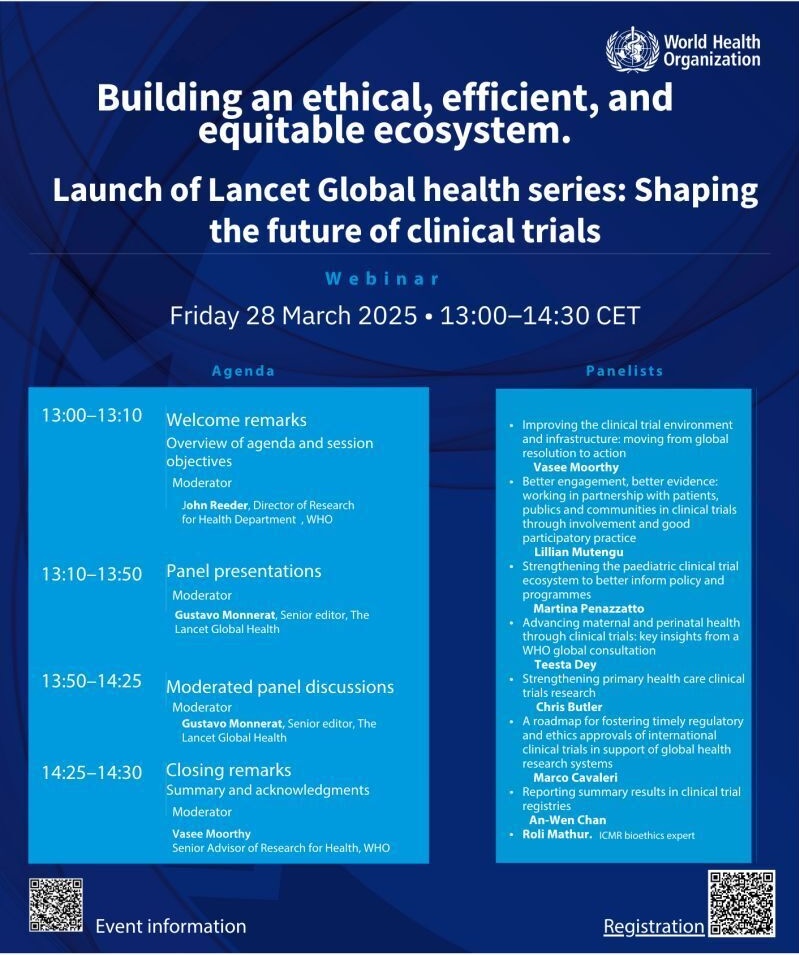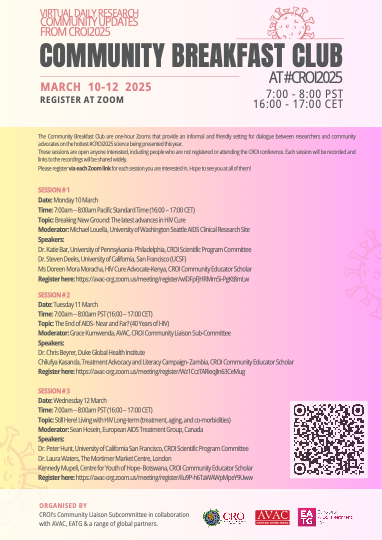This week brought major developments for global health: new tariffs on pharmaceuticals are pending, a court blocks the cap on NIH indirect costs, and worries a leadership vacuum at the CDC is a cause for yet more concern. Amid the chaos, advocates rallied—defending PEPFAR’s legacy in Congress and launching a national Black-centered, Black-led HIV research agenda.
Read on for highlights and implications and be sure to check out the What We’re Reading section, which is full of great pieces this week.
Tariffs and HIV
As the administration created even more chaos with the on-again, off-again sweeping tariffs and threats of major trade wars, a new report highlights concern and potential effects on health systems—including HIV prevention and care. Finished pharmaceuticals are temporarily exempt, but essential components like diagnostic tests, syringes, excipients and other medical supplies may not be protected, raising alarms about cost increases and supply chain delays. And on Tuesday, the President announced at a dinner that new tariffs targeting pharmaceuticals are now officially “coming soon.”
IMPLICATIONS: If global pharmaceutical manufacturers move their operations to avoid tariffs, FDA inspections—with many fewer resources in the wake of last week’s mass layoffs—could delay approval of new products. Clinics, hospitals and other health systems may face increased costs, limited availability of products and a more fragile supply chain.
READ:
- How Will Trump’s Tariffs Impact Medicine and Healthcare?—Medpage Today
- Trump Defends Tariffs, Announces Pharmaceutical Levies Coming Soon—The Wall Street Journal
NIH Overhead Cuts Blocked by Court
A federal judge issued a permanent injunction blocking an administration policy that would have capped indirect cost payments at 15% for both new and existing NIH grants. The policy threatened to cut billions in support for universities, academic centers, and research institutions—jeopardizing infrastructure, staff, and ongoing studies. While the administration may appeal the ruling, it marks an important step in what could be a long legal battle over the future of federal research funding. At the same time, massive uncertainty remains at NIH, given the numerous staff and grant terminations.
READ:
- Federal judge issues permanent injunction on Trump cuts to research overhead payments—STAT
- A closer look at the nationwide impact of NIH cuts—Axios
- How Trump 2.0 is slashing NIH-backed research — in charts – Nature
US CDC Uncertainty
Internal memos reported by Inside Medicine indicate that the US CDC currently has no legally-required Acting Director, which leaves the agency in a leadership vacuum at a critical time. Dr. Susan Monarez, who previously served in an acting capacity, became ineligible for that role after being nominated for the permanent position on March 24. In the meantime, scientists and advocates are calling on federal and state health leaders to protect the nation’s only STD reference laboratory and reinstate over 30 scientists affected by the recent reduction in force (RIF) amid a growing public health crisis of rising STDs and drug-resistant infections. Colleen Kelley, chair of the HIV Medicine Association (HIVMA) testified before Congress Wednesday advocating for the CDC’s prevention division, continued funding in HIV care, prevention and research.
IMPLICATIONS: Without a legally authorized director, decisions normally reserved for CDC leadership—including the acceptance of upcoming vaccine recommendations by the Advisory Committee on Immunization Practices (ACIP)—must now be made by HHS Secretary Robert F. Kennedy Jr., a known vaccine skeptic. This raises urgent concerns about legal compliance, scientific integrity, and public trust, particularly as thousands of CDC staff have been laid off and critical public health decisions loom.
READ:
- Scoop: CDC has no Acting Director, sources confirm—Inside Medicine
- A Federal Lab That Tracked Rising S.T.I.s Has Been Shuttered—New York Times
Making the Case for PEPFAR
On Tuesday, EGPAF’s Catherine Connor and Ambassador Mark Dybul testified at the US House Appropriations Subcommittee hearing on PEPFAR, issuing powerful affirmations of the program’s life-saving impact—and the bipartisan commitment to its future. Lawmakers from both sides showed strong support for PEPFAR. They also shared an interest in innovation—including the promise of long-acting PrEP—to strengthen the program’s next phase. Their testimony came at the same time that Michel Sidibe and colleagues published new data in a Lancet Correspondence underscoring PEPFAR’s legacy—in saving an estimated 26 million lives, and also in catalyzing a 212% increase in domestic health investment across PEPFAR-supported African countries, since 2004. In the same issue, Lucie Cluver published updated modeling of the impact of potential PEPFAR cuts.
READ/WATCH:
- Hearing – Assessing the President’s Emergency Plan for AIDS Relief (PEPFAR)—House Appropriations Committee
- Accelerating domestic investments to end AIDS in Africa—The Lancet
- Protecting Africa’s children from extreme risk: a runway of sustainability for PEPFAR programmes—The Lancet
- Impact of PEPFAR Stop-Work Order on PrEP—AVAC
A Black-led Agenda for HIV Research
PrEP in Black America (PIBA) and more than 80 Black researchers, scientists, and community leaders, launched the first-ever national Black HIV Prevention Research Agenda this week, a call to action and a blueprint to end HIV in Black communities. The agenda centers Black voices, leadership, and lived experience to influence how HIV prevention research is conducted, funded, and implemented. AVAC’s John Meade described the launch as a moment of “reckoning and resistance,” pointing to the urgent need to protect public health infrastructure, advance equity, and resist political threats to HIV research and LGBTQ+ rights. This domestic research agenda importantly complements the People’s Research Agenda that AVAC and global partners released last October. The two documents provide a truly global, community-led perspective on the future of HIV prevention research.
READ:
- Advancing the Movement: HIV Prevention Research For Black Communities—PIBA
- Advancing the movement: 100 Black researchers, scientists unveil agenda to support HIV Prevention Research—The Atlanta Voice
The Future of Injectable Lenacapavir for PrEP
Clinical Infectious Diseases covered two viewpoints offering different perspectives on the future of injectable lenacapavir for PrEP—and the future of HIV prevention more broadly.
- The Need for Lenacapavir Compulsory Licences in Ending the HIV Epidemic
- Lenacapavir for Human Immunodeficiency Virus (HIV) Prevention: A Commitment to Equitable Access and Partnership by Gilead Sciences
What We’re Reading
- Is This the Beginning of a New H.I.V. Crisis?—The New York Times
- Undermining HIV Prevention Now Will Cost Billions Later—Contagion Live
- Who Will Care for Infants With H.I.V. Overseas—The New York Times
- A refusal to abandon HIV science—AIDS
- The Effects of Reductions in United States Foreign Assistance on Global Health—SSRN (pre-print)
Update on AVAC vs. Department of State
Two months ago, AVAC sued the US government over an Executive Order that froze all foreign assistance.
Since then, the court has ordered the government to restart certain payments and uphold its legal obligations. But delays, resistance, and appeals continue—putting global health, HIV prevention, and US credibility on the line.
Read our update on the case and watch our latest episode of PxPulse Live where AVAC’s Executive Director Mitchell Warren and Public Citizen litigator Lauren Bateman unpack the latest legal developments.

Resources
- The Status of PEPFAR’s USAID Programming—amfAR
- Tracking the Freeze:Real-Time Impact on Key Populations--GBGMC
- The impact of suspensions and reductions in health official development assistance on health systems—WHO
- The Best Investment You Didn’t Know You Made: How NIH Funding Fuels Innovation and Economic Growth— amfAR
- Quick Take: HIV Research Matters for America—O’Neil Institute and amfAR
- What Do Federal Staffing Cuts and HHS Restructuring Mean for the Nation’s HIV Response?—KFF
- Domestic Funding Contributions to Health: Comparing Changes in Domestic Financing in PEPFAR and Non-PEPFAR Supported Countries—amfAR
- The USAID List of Terminated Global Health Awards – What Does it Tell Us—KFF

